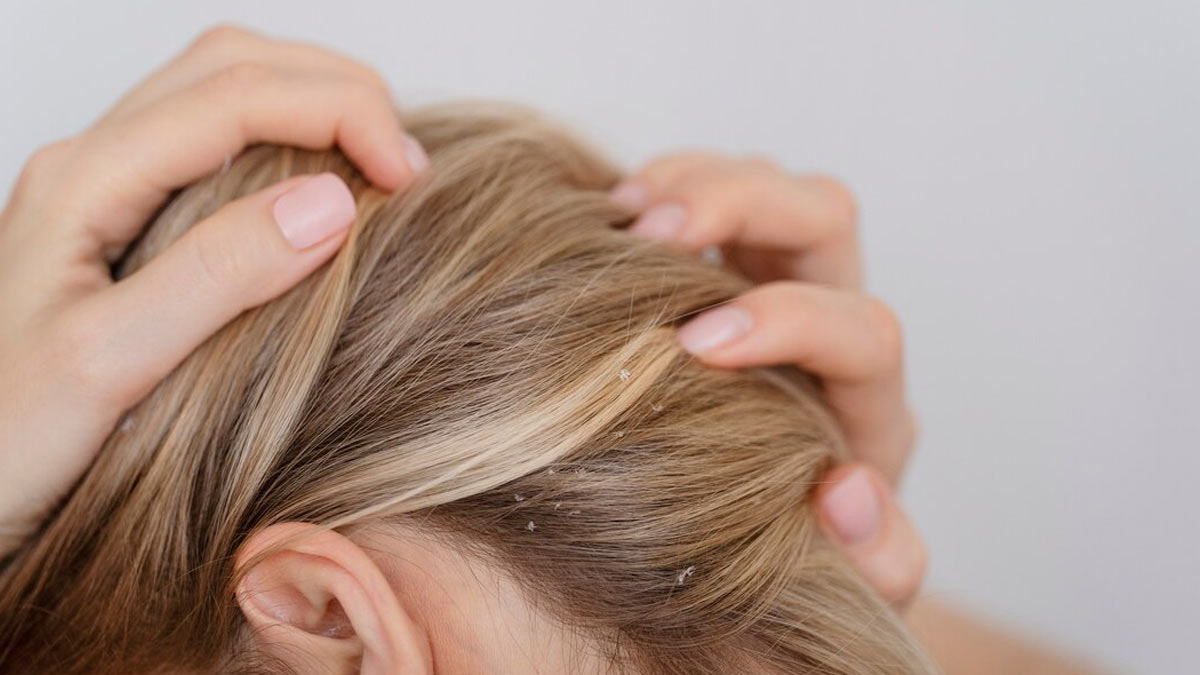
If you are noticing reddish, scaly patches and silvery scales on your scalp, along with irritation and discomfort, you are suffering from what is known as scalp psoriasis. Scalp Psoriasis is an autoimmune disease that causes the skin cells to grow and generate too quickly and build up into patches.
Table of Content:-
The symptoms of the condition include raised, reddish, or salmon-colored patches with white scales along with an intense itchy feeling. Excessive scratching to soothe down that itchy feeling can damage the hair follicles and temporary hair loss. If you are dealing with something like that, here’s a guide to what the condition is, its causes, and the course of treatment.
Causes Of Scalp Psoriasis And Risk Factors

Researchers haven’t been able to identify the causes of any kind of psoriasis yet. However, it is believed that genetic and environmental factors play a major role in it. According to Dr. Shankar Sawant, Consultant Dermatologist, SL Raheja Hospital, Mahim-Fortis Associate, Psoriasis comes into play when the T-helper cells in the immune system start attacking the healthy cells of the body by mistake. As a result, the new cells start developing rapidly, leading to thick and scaly patches on the skin. Though it is not established what leads to scalp psoriasis in the first place, here are a few things that contribute to the condition and may aggravate it:
- Genetics and Family History: A person is more susceptible to scalp psoriasis when one or both of the parents have had the condition at any given point.
- Smoking: The risk of psoriasis is higher in those with a habit of smoking and if the condition is ongoing, it can get further aggravated.
- High Stress Levels: Stress is well known to affect the immune system which can lead to imbalances and cause conditions like psoriasis.
- Infections: Viral and bacterial infections play a big role in causing conditions like psoriasis, especially in people with compromised immune systems.
- Obesity: It is also believed that people with obesity have an increased risk of psoriasis.
Also Read: Does Scalp Psoriasis Cause Hair Fall?
Treatment
Here are a few treatments that have proven to be beneficial for treating scalp psoriasis. However, it is advised to consult a medical professional before starting any medication:
- Betamethasone-calcipotriene: Betamethasone, paired with Vitamin D helps relieve redness and itching that comes with psoriasis, and alters how T-helper cells affect the skin. It can be used in the form of creams, ointments, and suspensions.
- Methotrexate: Overgrowth of cells can be treated by taking methotrexate as per the directions given by the physician. It is a really strong drug and is only prescribed when the psoriasis is severe and the symptoms are debilitating.
- Cyclosporine: It is an orally administered drug that helps calm the immune system and slow down the growth of certain immune system cells. It is again used for severe cases of psoriasis.
- Home Remedies: Apart from medical treatment, some home remedies involving aloe vera gel, apple cider vinegar, etc are believed to alleviate the symptoms of scalp psoriasis based on anecdotal evidence.
Also Read: Home Remedies To Control Psoriasis Symptoms
Prevention
It is essential to follow some prevention tips in order to make sure that the ongoing condition doesn’t get aggravated or worsened. Here are a few things one should keep in mind when dealing with such infections:
- Remember To Moisturize: It is important to keep the scalp moisturized as dry skin can substantially worsen the symptoms.
- Avoid Self-Medication: Scalp Psoriasis is a tricky condition to deal with, hence, self-medication is highly discouraged.
- Avoid Scratching The Scalp: Scratching the scalp extensively will only aggravate the infection and even cause damage to hair follicles and lead to temporary hair loss.
- Minimize Stress: Stress plays a vital role in autoimmune diseases and it is the same case when it comes to scalp psoriasis. It is advised to manage stress and anxiety in order to not make the ongoing condition even more distressing.
Scalp psoriasis might be a serious skin condition, however, it is completely treatable with the right medication and certain lifestyle changes.
Also watch this video
How we keep this article up to date:
We work with experts and keep a close eye on the latest in health and wellness. Whenever there is a new research or helpful information, we update our articles with accurate and useful advice.
Current Version